How to Become a Speech Therapist


Unlocking the Journey to Becoming a Speech Therapist
Speech therapy is a vital and growing profession dedicated to diagnosing and treating communication and swallowing disorders. This article outlines the comprehensive educational and professional steps necessary to become a certified and licensed speech-language pathologist (SLP), highlighting the academic pathways, certification requirements, clinical experiences, and career outlooks that prospective speech therapists can expect.
Foundational Education: Building a Strong Undergraduate Base
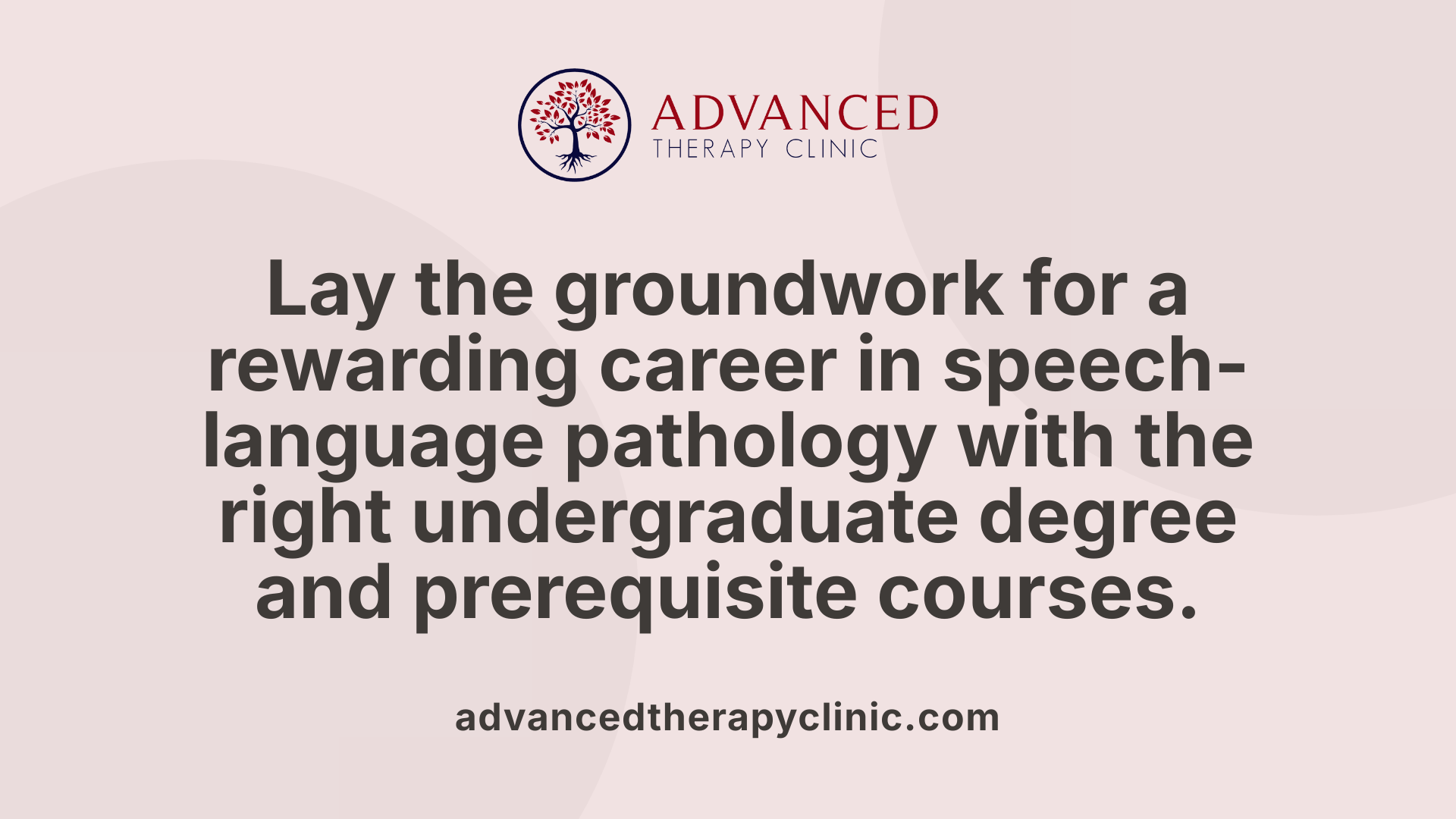
What undergraduate education is required to become a speech therapist?
Becoming a speech therapist starts with obtaining a bachelor's degree in a related field. Ideal undergraduate majors include communication sciences and disorders, speech-language pathology, linguistics, psychology, education, or language development. These areas provide a solid foundation in understanding speech, language, and communication processes.
For individuals whose undergraduate degree is not in communication sciences and disorders, it is usually necessary to complete prerequisite coursework before progressing to graduate studies. These required courses typically include Anatomy and Physiology of Speech and Hearing, Speech and Hearing Science, Introduction to Audiology, Language Development, and Phonetics. These courses ensure that all candidates have the essential knowledge needed for advanced study in speech-language pathology.
Selecting a relevant undergraduate major is crucial as it prepares students academically and clinically for master's programs in speech-language pathology, which often build upon this foundational knowledge. Moreover, completing prerequisite courses helps students meet admission criteria for graduate programs accredited by the Council on Academic Accreditation (CAA), setting them on the path to certification and licensure.
This foundational undergraduate education is the first step in a rewarding career helping individuals with speech, language, and communication disorders.
Advanced Graduate Studies: Pursuing a Master's Degree in Speech-Language Pathology
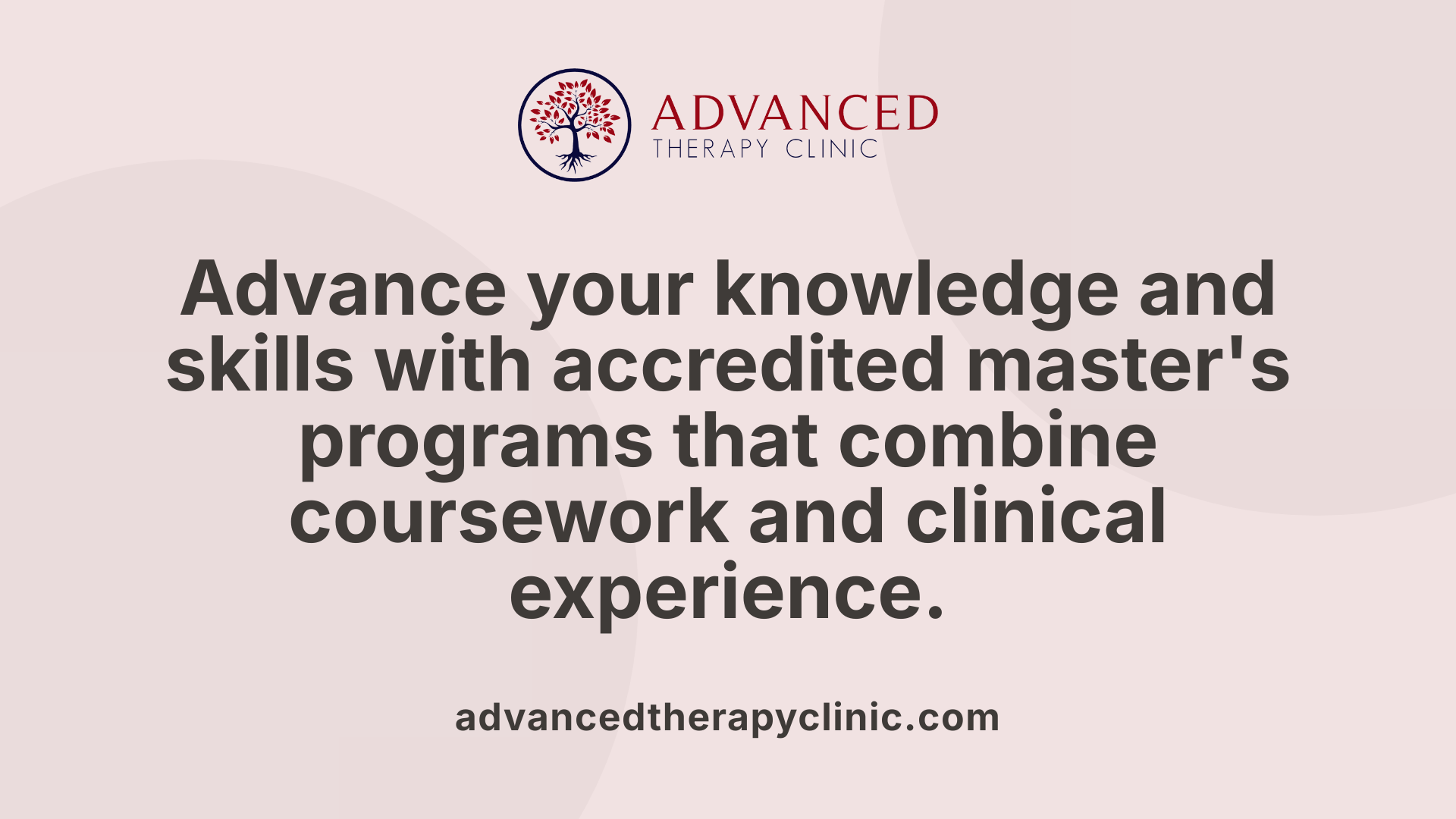
What graduate education is necessary to become a licensed speech-language pathologist?
To become a licensed speech-language pathologist (SLP), candidates must earn a master's degree in Speech-Language Pathology from a program accredited by the Council on Academic Accreditation (CAA) in Audiology and Speech-Language Pathology. This accreditation ensures that the program meets national quality standards essential for professional practice and future certification.
Master's programs requirements and curriculum
Typically, these master's programs require completing between 48 to 60 graduate-level credit hours. The curriculum combines rigorous academic coursework with extensive supervised clinical experience, enabling students to develop both theoretical knowledge and practical skills needed in the field.
Typical course topics and credit requirements
Students study a variety of topics crucial to understanding and treating communication disorders. Common course subjects include:
- Linguistic and Cognitive Development
- Neurogenic Communication Disorders
- Dysphagia (swallowing disorders)
- Phonetics and Speech Science
- Language Development
In addition to coursework, prerequisite classes often cover anatomy and physiology of speech and hearing, audiology, and speech and hearing science, particularly for students without an undergraduate degree in Communication Sciences and Disorders.
Clinical practicum hours
An important component of the master’s program is the clinical practicum, where students must complete at least 400 hours of supervised clinical experience. This includes approximately 25 hours of guided clinical observation and around 375 hours of direct client contact across diverse populations and settings. These practicum hours provide invaluable hands-on experience under the supervision of certified professionals.
Graduates of these programs are then prepared to fulfill post-graduate requirements like clinical fellowships and certification exams necessary for licensure and professional practice as speech-language pathologists.
Certification and Licensure: Navigating Exams and Professional Credentials
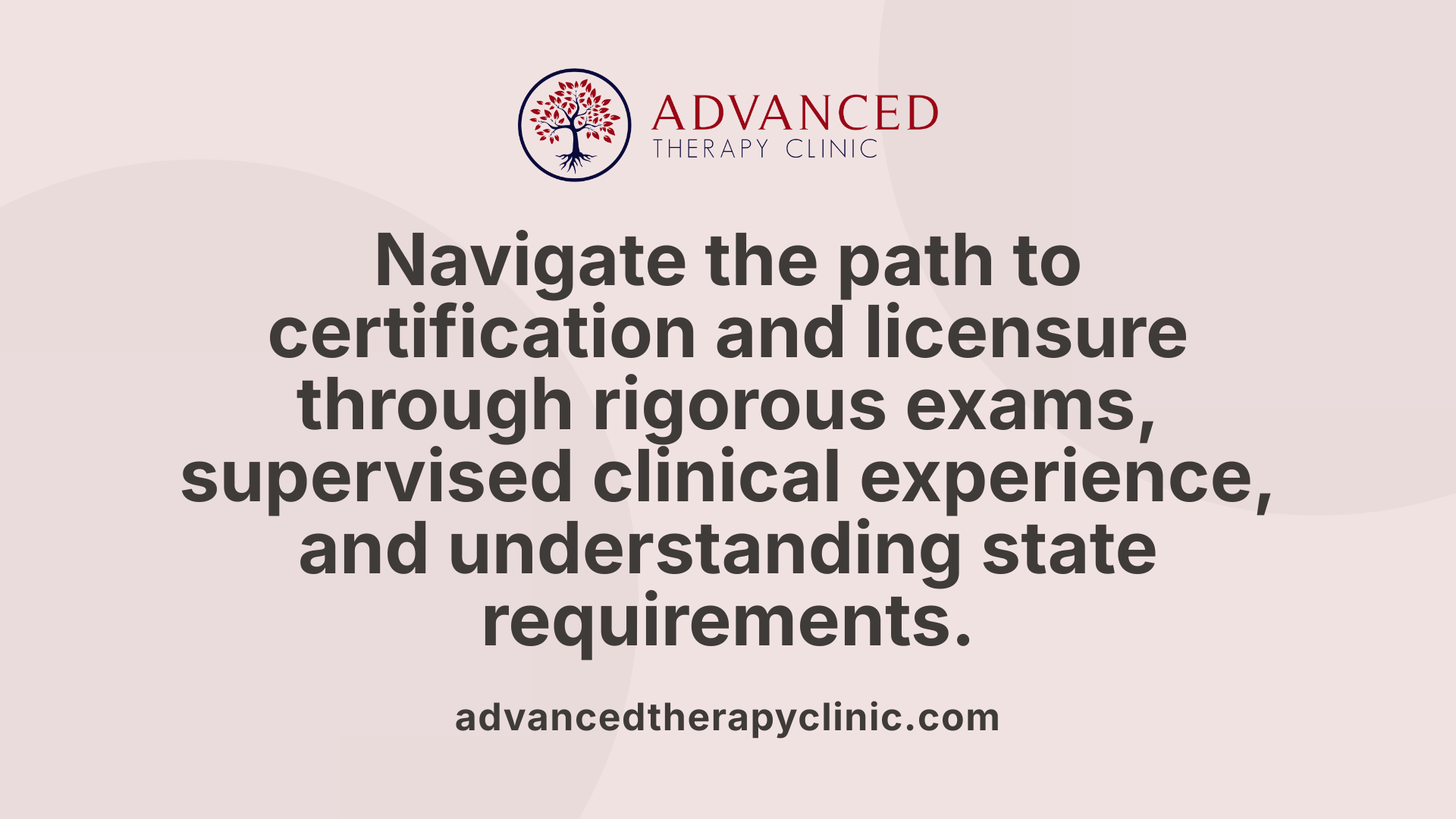
What are the certification and licensure requirements for speech-language pathologists?
Becoming a certified and licensed speech-language pathologist involves successfully navigating national exams, professional credentialing, and state licensing standards.
Praxis Examination requirements and scoring
A crucial step is passing the Praxis Examination in Speech-Language Pathology, a standardized test that evaluates candidates' knowledge across assessment, foundations, and treatment in the field. A minimum score of 162 is required to meet certification and licensure benchmarks. Candidates may take this exam before, during, or after applying for professional certification.
Application to ASHA for CCC-SLP certification
After completing graduate studies and passing the Praxis exam, candidates apply to the American Speech-Language-Hearing Association (ASHA) for the Certificate of Clinical Competence in Speech-Language Pathology (CCC-SLP). Application materials include official transcripts, Praxis scores, detailed clinical fellowship reports, and thorough documentation of supervised clinical experience. The clinical fellowship must include at least 1,260 hours and 36 weeks of full-time mentored practice under an ASHA-certified supervisor.
Overview of licensure requirements and state variations
Licensure is mandatory for independent practice and varies across states. Generally, applicants must complete the clinical fellowship, hold the CCC-SLP credential, and submit proof of these along with other state-specific requirements such as background checks or fees. For instance, in Virginia, licensure renewal every two years requires continuing education of at least 30 hours. Although certification by ASHA is voluntary in some states, it enhances career prospects and is a prerequisite in others.
Navigating certification and licensure ensures SLPs meet rigorous professional standards, enabling them to deliver quality care across diverse work settings.
Clinical Fellowship: Gaining Supervised Hands-On Experience

What is the role of the clinical fellowship in becoming a speech therapist?
The clinical fellowship plays a critical role in the transition from academic training to independent professional practice. It is a mandatory post-graduate requirement lasting at least 36 weeks and involves completing a minimum of 1,260 hours of supervised clinical experience. This hands-on training is indispensable for developing the skills and confidence essential to providing effective speech-language pathology services.
Clinical fellowship duration and hour requirements
During the fellowship, candidates must accumulate at least 1,260 hours of clinical practice. This includes a minimum of 36 weeks of full-time work, where at least 80% of those hours involve direct client contact. The extensive hands-on exposure covers a range of speech and language disorders and client populations, allowing fellows to apply theoretical knowledge from their graduate studies in real-world settings.
Role and qualifications of mentors
Mentorship is a cornerstone of the clinical fellowship. Fellows work under the close supervision of a licensed and certified speech-language pathologist who holds the Certificate of Clinical Competence in Speech-Language Pathology (CCC-SLP). Mentors provide guidance, feedback, and support throughout the fellowship, ensuring clinical competencies are met. Mentors' certification status is verified through official American Speech-Language-Hearing Association (ASHA) tools, guaranteeing that fellows receive expert supervision.
Importance of clinical fellowship for certification
Successfully completing this supervised fellowship is a precondition for applying for the CCC-SLP certification through ASHA. The fellowship bridges the gap between academic training and autonomous clinical practice, confirming the candidate's readiness to serve clients effectively. This rigorous requirement solidifies the fellow's clinical skills and ensures high professional standards within the speech-language pathology field.
Career Outlook and Salary Expectations for Speech Therapists
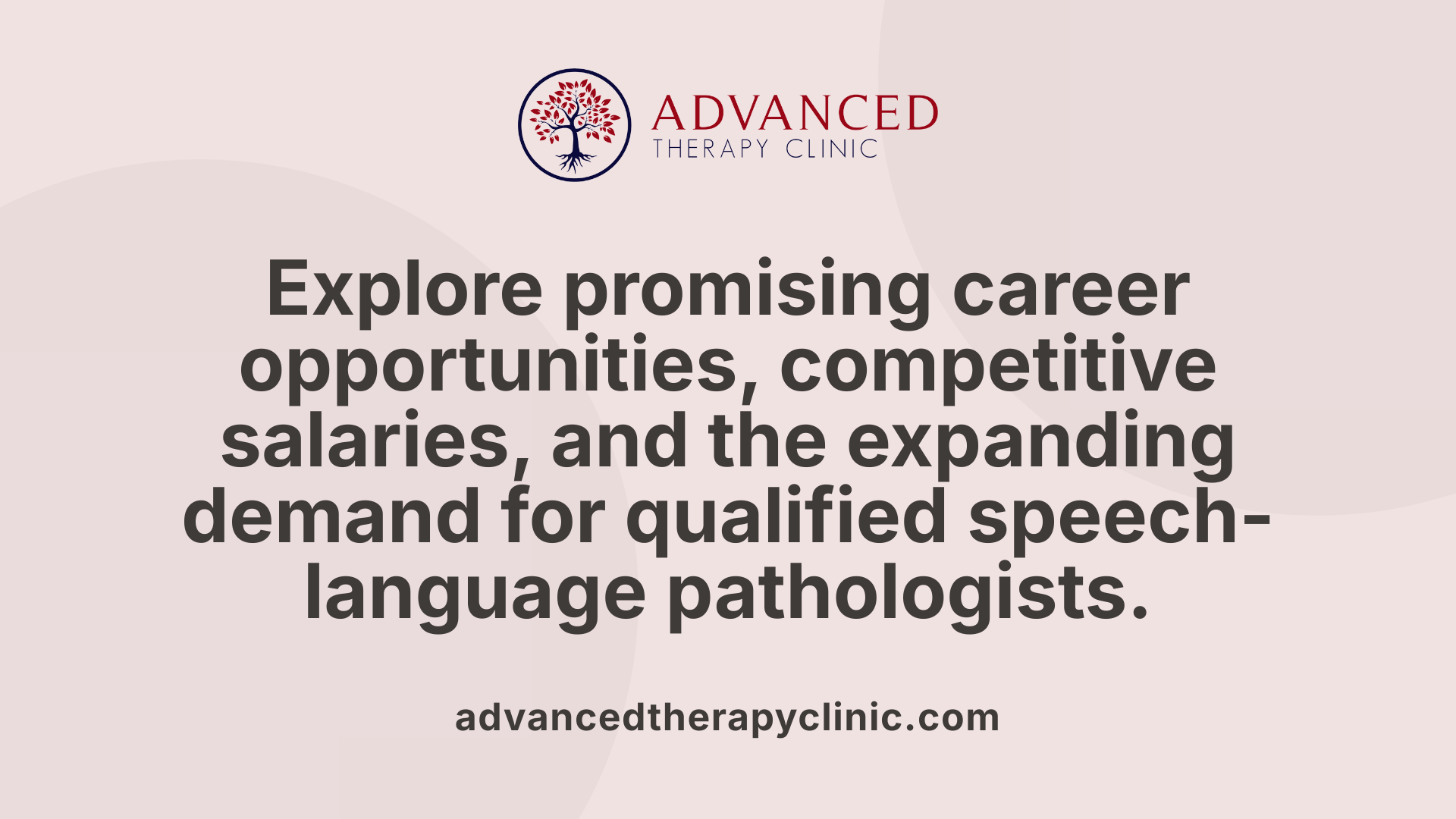
What are the career prospects and earning potential for speech-language pathologists?
Speech-language pathologists (SLPs) enjoy a promising career outlook marked by strong demand and competitive salaries. Nationally, the median annual salary for SLPs is approximately $89,290. Yet, regional differences exist; for example, SLPs in Virginia earn an average salary of around $95,640, with some areas like metro Washington D.C. offering salaries as high as $111,110.
Job growth in the field is robust, with projections indicating an increase of 19% to 28% over the next decade. This growth is attributed to rising awareness of speech and language disorders across the lifespan and a growing need for treatment services. Virginia's employment outlook, for example, is particularly strong, with an expected 28% job increase and nearly 290 new positions each year.
SLPs find employment in a variety of settings, giving the profession diversity and flexibility. Common workplaces include schools, healthcare facilities such as hospitals and rehabilitation centers, specialized speech therapy clinics, private practices, and home health care. SLPs may also choose to specialize in areas such as pediatrics, geriatrics, or disorders related to neurogenic communication, enhancing their expertise and career opportunities.
This combination of a solid salary foundation and favorable job growth makes speech-language pathology an attractive profession with considerable job security and options for specialization and workplace preferences.
The Importance of Continuous Education and Professional Development
Why is ongoing education important for speech-language pathologists?
Continued education is critical for speech-language pathologists (SLPs) to maintain their professional credentials and provide the highest level of care. To keep their state licensure active, most states require SLPs to complete continuing education (CE) contact hours during each renewal period, commonly about 30 hours every two years.
Maintaining licensure and certification
SLPs must comply with these requirements to preserve both their state licensure and the Certificate of Clinical Competence in Speech-Language Pathology (CCC-SLP) awarded by ASHA. Without fulfilling these CE mandates, practitioners risk losing their licensure or certification, which restricts their ability to practice.
Continuing education requirements
Continuing education typically covers new clinical methodologies, advances in speech and language pathology, updates in regulations, and emerging disorders. Engaging in ongoing learning ensures that speech therapists stay informed of current best practices and maintain high standards of patient care.
Benefits of ASHA membership
Being a member of the American Speech-Language-Hearing Association (ASHA) provides vital support for professional growth. Members gain access to a wealth of learning resources, research publications, professional advocacy initiatives, and a network of peers. These advantages enable SLPs to keep pace with the latest developments, sharpen their skills, and contribute to advancing the profession.
By prioritizing continuous education and leveraging ASHA membership benefits, speech-language pathologists secure their licensure, enhance their expertise, and sustain their commitment to quality clinical service.
Admission Requirements and Admissions Process for Graduate Speech-Language Pathology Programs
What are the prerequisites for graduate admission?
Prospective students must complete specific undergraduate courses before applying to a speech-language pathology graduate program. Typical prerequisites include subjects such as physics or chemistry, biology, statistics, social or behavioral sciences, and crucially, speech and hearing sciences. Completing these courses ensures that candidates possess the foundational knowledge necessary for advanced study.
What are the typical requirements such as GRE, GPA, and recommendation letters?
Graduate schools often require applicants to have a competitive undergraduate GPA, submit GRE scores, and provide letters of recommendation. These elements help admissions committees assess academic readiness and professional potential. Strong GRE scores combined with positive recommendations can greatly enhance an applicant’s chances.
How does relevant undergraduate preparation impact admissions?
Candidates with an undergraduate degree in communication sciences and disorders or related fields such as psychology, linguistics, or education generally have an advantage. This preparation not only covers vital content but may include clinical or volunteer experiences, demonstrating commitment and familiarity with the speech-language pathology field. For those without a directly related degree, completing prerequisite courses is essential to qualify for admission.
Overall, successful applicants balance strong academic credentials with relevant coursework and experience. This holistic profile supports readiness for rigorous graduate study and clinical training in speech-language pathology.
Typical Roles and Skills of a Speech-Language Pathologist
What skills and roles are typical for speech-language pathologists?
Speech-language pathologists (SLPs) are healthcare professionals who diagnose and treat a wide range of disorders affecting speech, language processing, voice, cognitive communication, and swallowing. They commonly work with individuals experiencing speech delays, aphasia (a language disorder often caused by brain injury), stuttering, and voice disorders.
Common disorders treated
- Speech delays in children
- Aphasia following strokes or brain trauma
- Stuttering and fluency issues
- Voice disorders and dysphagia (swallowing difficulties)
- Cognitive-communication disorders linked to neurological conditions
Work environments
SLPs practice in diverse settings including:
- Schools, providing support for students with communication needs
- Hospitals and rehabilitation centers treating acquired neurological conditions
- Nursing homes and long-term care facilities for elderly patients
- Private clinics focused on speech therapy
- In-home care for patients with limited mobility
Core skills needed for success
Successful speech-language pathologists possess several essential abilities:
- Compassion and empathy: Vital for building trust with clients and families
- Effective communication: To educate and motivate clients during therapy
- Critical thinking and problem-solving: For assessing individual needs and developing tailored treatment plans
- Analytical skills: To monitor progress and adjust interventions accordingly
These roles and skills enable SLPs to improve their clients’ communication and quality of life effectively, making the profession rewarding and impactful.
Embarking on a Fulfilling Career as a Speech Therapist
The path to becoming a speech-language pathologist is rigorous but rewarding, combining strong foundational education, advanced graduate training, supervised clinical experience, and professional certification. With excellent job prospects, competitive salaries, and the opportunity to positively impact lives across all age groups, a career in speech therapy offers both personal and professional fulfillment. Ongoing education and adherence to certification and licensure standards ensure that SLPs remain leaders in their field, ready to meet evolving communication challenges in diverse populations.
References
- How To Become A Speech Pathologist: 6 Crucial Career ...
- Speech-Language Pathology Pathway to Certification
- How to Become a Speech-Language Pathologist
- How to Become a Speech Therapist in Virginia
- How Long Does It Take to Become a Speech-Language ...
- How to Become a Speech Pathologist in 5 Steps
- Speech Language Pathologist: Step-by-Step Career Guide
Recent articles

What to Expect at Your First Therapy Session
Discover what your child’s first therapy session looks like, from rapport building to goal setting, and how families can feel confident starting care.
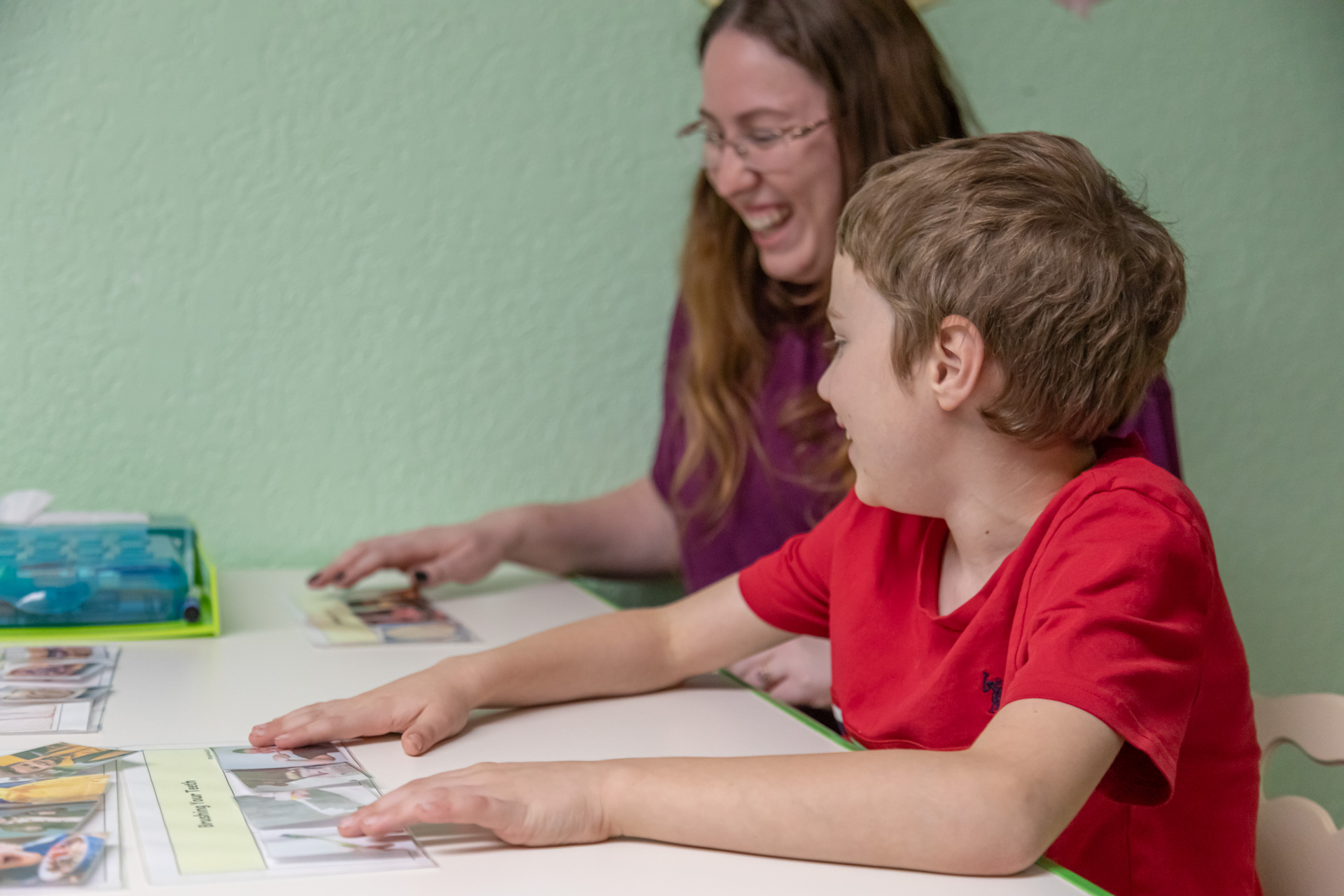
Celebrating Small Wins: How Therapy Helps Kids Build Confidence All Year Long
Learn why small wins in therapy matter, how they boost your child’s confidence, and simple ways families can celebrate progress all year long.

Empowering Missoula Children to Grow With Confidence and Connection
Learn how ABA therapy in Missoula helps children build communication, independence, and confidence through personalized, family‑centered support at Advanced Therapy Clinic.

Compassionate Pediatric Therapy in Butte, Montana
A welcoming place where every child’s potential is celebrated
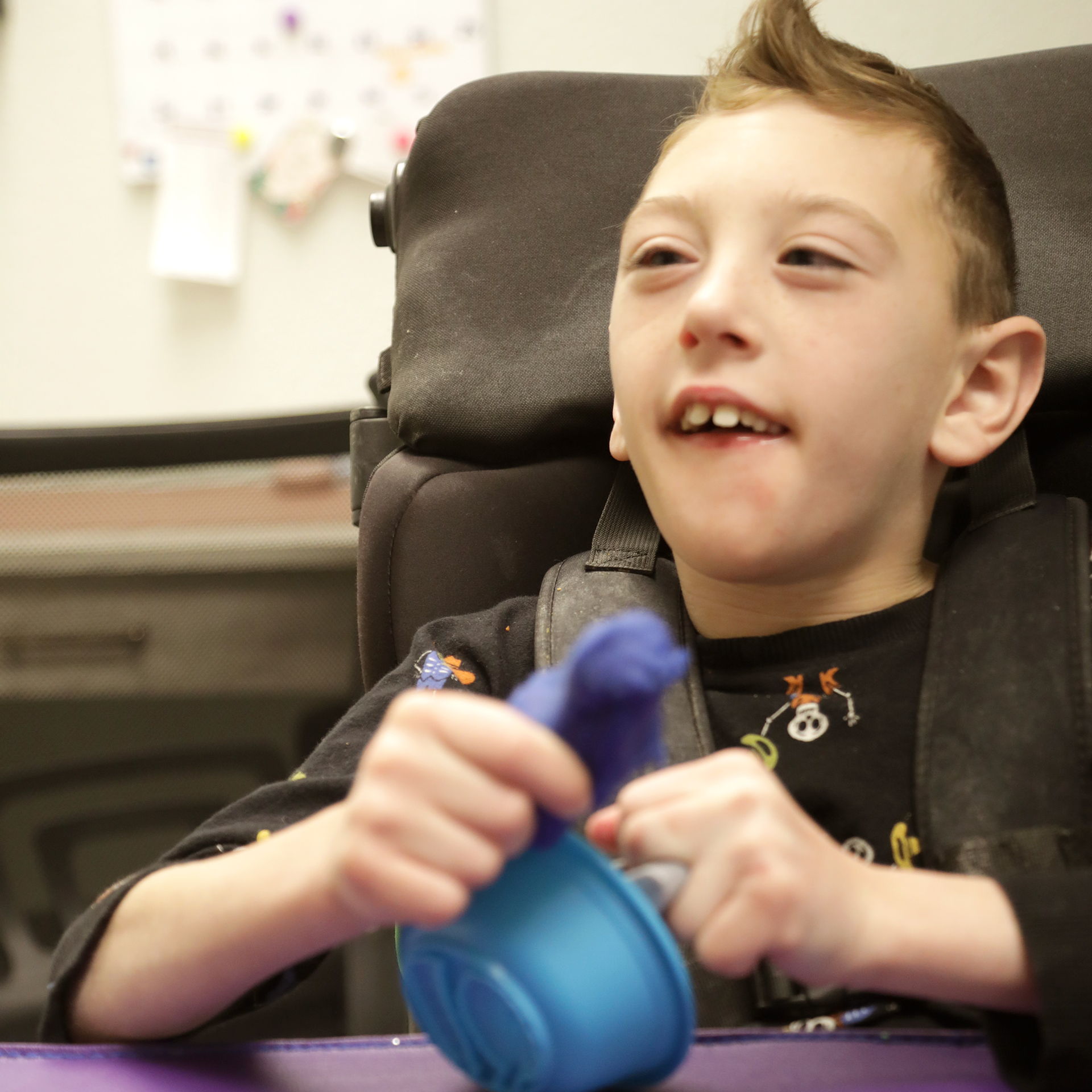
How Pediatric Therapy Helps Kids Thrive across Montana and Wyoming
A supportive guide for families exploring therapy options in Billings, Butte, Missoula or Sheridan.
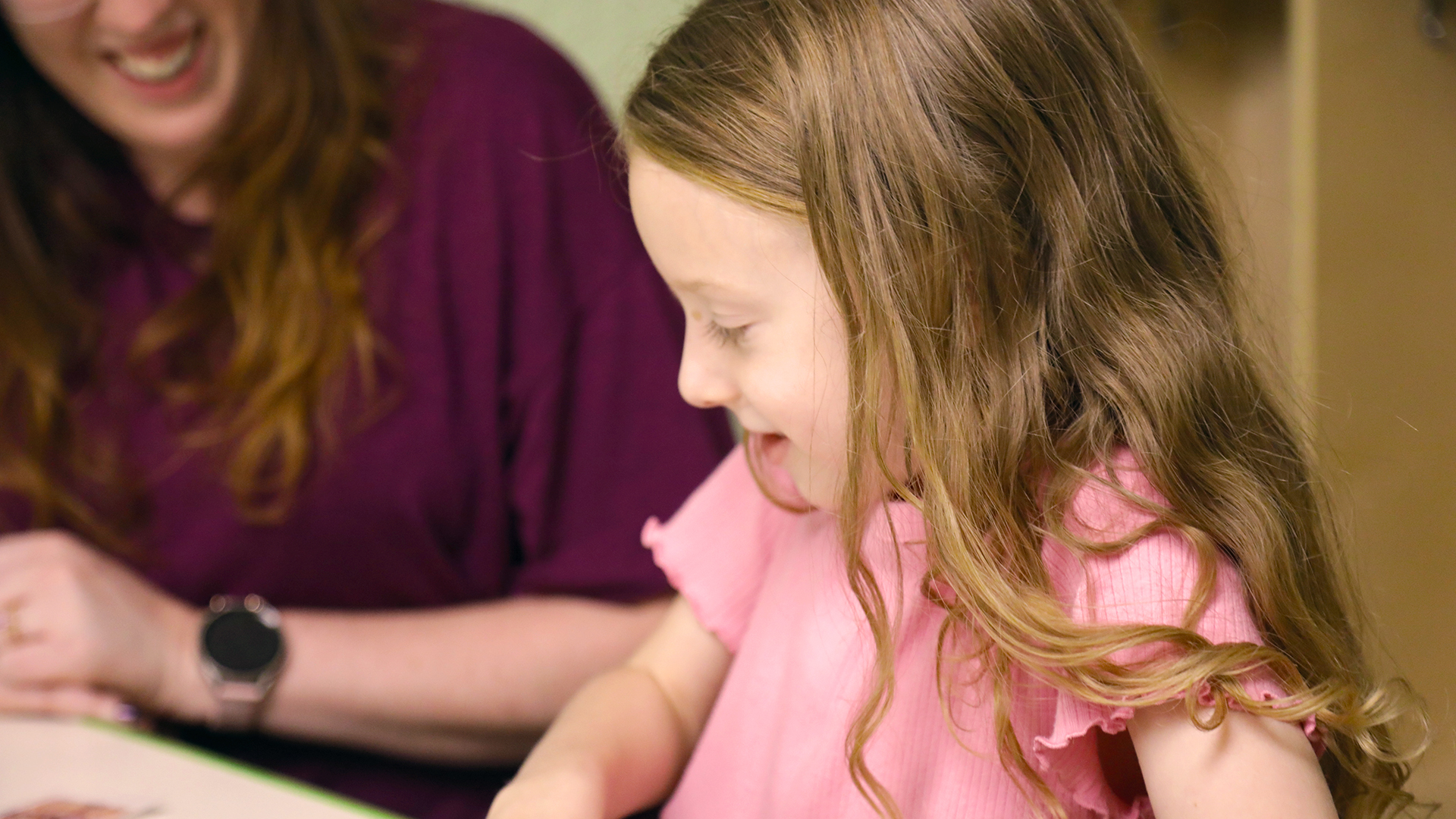
How to Choose the Right Pediatric Therapy Clinic in Billings, Montana
A Parent‑Friendly Guide To Finding The Best Support For Your Child

